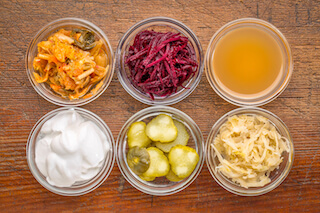Getting new, chemical free hair care with essential oils is easy! This is a product that I have been using for five years, and absolutely love it. Spray it on while hair is still wet and before any other styling products.
Why Make a Hair Tonic?
I have used tonics and sprays to hydrate and smooth for years, and I like to apply them before either blow drying or air drying. Over the past few months I have been exploring new options for living a chemical free lifestyle. I have done well with food and medications, but I have hesitated with cosmetics and hair care.
I looked for a blow dry spray, but could not find anything that I liked that was chemical free. Therefore, I started to read the labels of some of the products that I have liked in the past. They all had one thing in common: essential oils and small amounts of fatty oils.
This gave me the confidence to try it myself! My first attempt at a hair tonic was a huge success. My hair is softer than it ever was with the chemically laden products. An added bonus is that this homemade product smells divine.
Ingredients
16 oz water
10 drops tea tree essential oil
6 drops lemongrass essential oil
5 drops rosemary essential oil
4 drops peppermint essential oil
4 drops vitamin E oil
Directions
Combine all ingredients in a glass spray bottle. Shake well before each use, and apply to wet hair daily.
For another great non-toxic DIY recipe, check out these Essential Oil Hairsprays.




